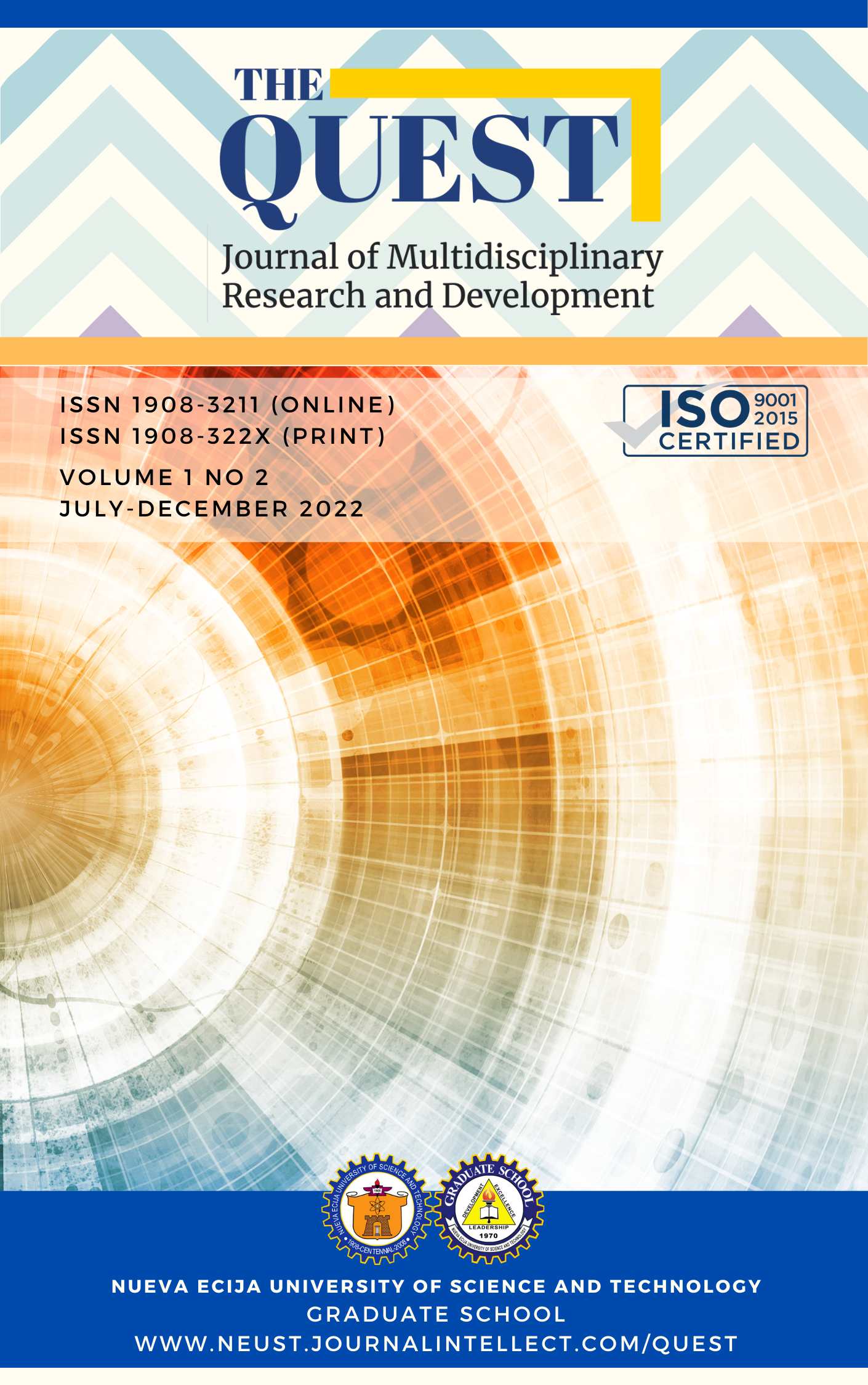Grab A Tutor: A Decision Support Mobile App for Student Tutoring

Published 12/30/2022
Keywords
- Decision Support,
- Grab A Tutor,
- Mobile App
How to Cite
Copyright (c) 2023 The QUEST: Journal of Multidisciplinary Research and Development

This work is licensed under a Creative Commons Attribution-NonCommercial 4.0 International License.
Abstract
This study aimed to develop a mobile app that would cater the needs of parents or guardians in finding reliable tutor for their child’s in need of tutoring services. The study focused on developing a mobile app entitled “Grab a Tutor: A Decision Support Mobile App for Student Tutoring.” All features stated on the user story board, use case diagrams and data flow diagrams were provided on the developed mobile app. The Grab a Tutor: A Decision Support Mobile App which was developed from August 1, 2018 up to December 2018 conforms to ISO/IEC 25010 Product Quality Standards and ISO/IEC 25010 Quality in Use Standards. The study was conducted using a developmental type of research. Data were gathered through informal and formal interviews, observations, internet searches, and survey questionnaires. The mobile app was developed using the phases of the Agile Approach Development which includes requirements analysis phase, planning phase, design phase, develop phase, release phase and track and monitor phase. Source code and design were constructed using Ionic framework and XAMPP. The implementation of the various technology used in the mobile app made it easier to meet all the aims that the researcher conceptualized. In order to assess the consistency and reliability of the mobile app, the researcher also used ISO/IEC 25010 as the standard testing tools. As a research standard, it was successful because it meant that the framework produced met the respondents' level of standards. Since it has been standardized, ISO / IEC 25010 describe a well-known consistency attribute and serves as the basis for many approaches to quality control. An error-free application and software reliability would be ensured.
References
- Carolyne Jacobs, Michael Wilson, Charles Barker. (2015). Using the latest developments in mobile technology to improve students' engagement with assessment feedback. International Conference on Interactive Mobile Communication Technologies and Learning (IMCL), 124-126.
- Crossman, A. (2020, March 19). purposive-sampling-3026727. Retrieved from ThoughtCo.: https://www.thoughtco.com/purposive-sampling-3026727
- Fredys Simanca, Rubén González, Luis Rodriguez, Daniel Burgos. (2020). Personalized tutoring model through the application of Learning Analytics phases. IEEE Latin America Transactions, vol. 18, no. 01, 7-15.
- Hsien-Hui Tang, Cyun-Meng Jheng, Miao-En Chien, Ni-Miao Lin, Mike Y. Chen. (2013). iCAN: A tablet-based pedagogical system for improving the user experience of children with autism in the learning process. IEEE International Conference on Orange Technologies (ICOT), 177-180.
- Paul, E. A., & Ann, S. R. (2022). Development and Assessment of Online Platform for Crop Production with Decision Support System. The Quest: Journal of Multidisciplinary Research and Development, 1(1).
- Jianjun Hou, Kuiyuan Zhang, Xuexiang Yang, Hongpeng Gao. (2014). M-learning Course Development and Practice Based on Tutor-Directed Online Teaching. International Conference of Educational Innovation through Technology (EITT), 21-28.
- Kai-Hsiang Yang, Shan-Shan Wu, Wen-Yu Lo, Wan-Ling Chang. (2015). Investigating the Effects of Mobile Learning with Cross-Age Peer Tutoring in English Learning. 2015 IIAI 4th International Congress on Advanced Applied Informatics (IIAI-AAI), 227.
